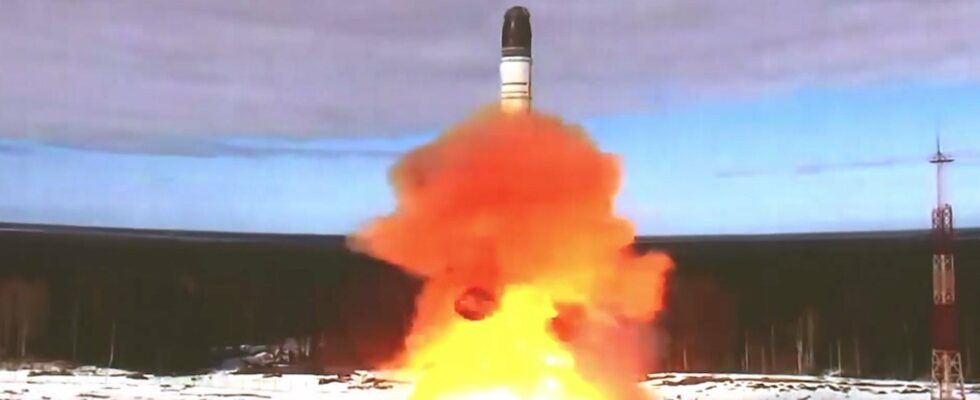On April 20, 2022, Russia announced with great fanfare the success of a test for its RS-28 Sarmat intercontinental ballistic missile (ICBM), nicknamed Satan 2 by the West. One of the “super weapons” presented by Vladimir Putin in 2018, supposed to be able to carry 15 nuclear warheads and reach London in less than six minutes, all to further strengthen Moscow’s aggressive nuclear deterrence. But since then, little information has filtered out from the Kremlin on the operating capacity of these missiles.
And for good reason: in recent days, the tests of this Satan 2 have reportedly experienced a third consecutive failure, and not the least. The Plesetsk test site, in the northwest of Russia, was apparently completely razed following a resounding explosion, probably that of the Sarmat missile. This is in any case what several experts are claiming on the social network X, who have published quite eloquent images to support their statements.
“Maxar – a network of space satellites – yesterday (September 21, editor’s note) collected new high-resolution satellite images that reveal the consequences of the spectacular failure of the launch of a Russian RS-28 ICBM at a launch site at the Plesetsk cosmodrome,” says George Barros, an expert for the Institute for the Study of War. “A large crater (about 62 meters wide) is visible at the launch silo and significant damage is visible in and around the launch pad, which suggests that the missile exploded shortly after ignition or launch,” he adds, while major forest fires in the surrounding area have also been observed in recent days.
It is difficult to date or know exactly the cause of the accident. While the Russian authorities had put in place flight restrictions in the region from September 19 to 23, leaving a fairly wide interval for the duration of the exercise, these were lifted on the evening of the 19th. Héloïse Fayet, a researcher at the Center for Security Studies at Ifri and specialized in questions of nuclear deterrence and proliferation, wrote on the social network X that this test would have “concluded with an explosion of the missile before it was even fired, possibly during the fuel filling”. A theory supported by Etienne Markus, an aeronautics specialist. “The Sarmat seems to be propelled by means of a very dangerous propellant, UDMH. UDMH is toxic and volatile, and produces flammable vapors in the air. It is therefore possible that a propellant leak in the silo caused this catastrophic event”, he explains. on X.
“One of the future keys to Russian nuclear deterrence”
This failure is far from trivial. For Etienne Marcuz, the destruction of this test site in northern Russia will “necessarily have major implications for the flight test program, which already seems to be seriously delayed.” In his eyes, three possibilities are emerging: “rebuilding the silo, which will take at least several months or even years,” carrying out the next tests “from the silos already built on the future operational deployment sites” or “stopping the program.” A last option that seems unlikely, while the Sarmat must be “one of the future keys to Russian nuclear deterrence” but now remains on three failures after accidents in February 2023 and November 2023.
But while the Sarmat is expected to significantly modernize Russia’s nuclear arsenal, this does not mean that the Kremlin is powerless in this area. “The SS-19 Mod. 3 and SS-18 Mod. 6, which the Sarmat is to replace, have been in service since 1980 and 1988, respectively. Depending on the availability of spare parts and maintenance capacity, Russia may not feel the urgent need to replace them,” believes on X Fabian Hoffmanna researcher at the University of Oslo who also specializes in nuclear issues. Although he says that “from Russia’s point of view, these test failures are probably a source of growing concern.” Kremlin spokesman Dmitry Peskov told Reuters on Monday that he had “no information” to give about a test of the Sarmat missile, which seems increasingly far from being operational in the near future.
